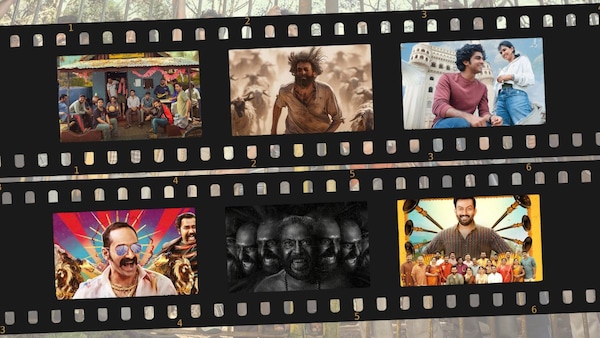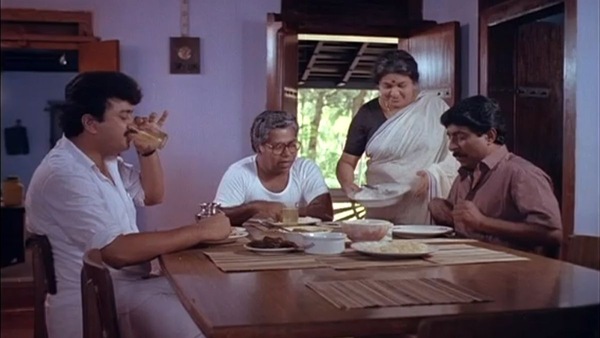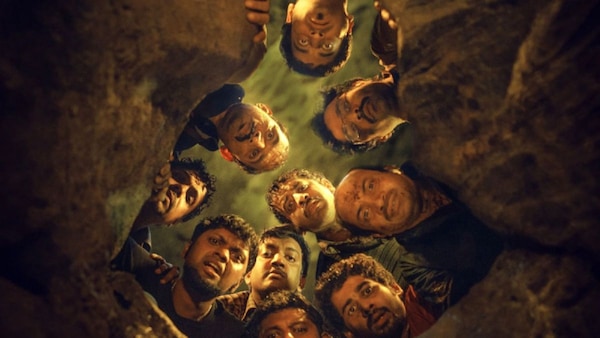Fragile Egos, Inflated Budgets & Star Power: Malayalam Cinema Producers Are Facing Tough Times
Neelima Menon spoke with a few prominent producers in Malayalam cinema to understand how their roles have evolved in today's age of social media, actor-owned production houses, and inflated budgets.

Last Updated: 05.58 AM, Sep 11, 2024
AS WE REACH THE FIRST HALF OF 2024, Malayalam cinema is in good stead. There are already four films (Manjummel Boys, Aadujeevitham, Premalu, Aavesham) that have grossed over Rs 100 crores worldwide, and four more that have earned over Rs 50 crores (Guruvayoor Ambalanadayil, Bramayugam, Varshangalkku Shesham, Turbo) worldwide. Roughly 129 films have been released as of last Friday. Across India, Malayalam cinema is being eulogised for its radical content, with rampant discussions and analytical studies in every North Indian movie online platform.
But along with such an overflow of goodwill, there have been a few uncomfortable murmurs from within the industry, mostly regarding its workings and the ecosystem in general. In April, the ED probed financial irregularities against Parava Films, which produced Manjummel Boys. Reportedly the ED had received complaints of financial discrepancies in the Malayalam film industry and the agency had initiated a probe targeting production houses. Following the Manjummel Boys controversy, the ED will now inspect the financial records of all blockbuster Malayalam films produced in Kerala over the past five years, including detailed information on production costs and revenue figures.
This comes under the heels of a complaint made by two filmmakers who alleged black money transactions within Kerala's theatre sector. This year, the industry has been experiencing unprecedented box-office collections, with films competing with each other to cross 100 crores. In the first five months, Malayalam cinema grossed over Rs 720 crores.
A recent report highlighted that Malayalam cinema is facing a crisis owing to a significant increase in salaries demanded by actors and technicians. So much so that the Producers Association has sent feelers to AMMA to interfere in this matter. But then it is also true that actors' remuneration has always been a point of contention in film industries since time immemorial. It also reflects changes in the film industry, market dynamics, and societal attitudes.
When production houses were brands
Earlier producers were considered sacred in Malayalam cinema. In fact, in the 60s through the 90s, legendary production houses played a pivotal role in shaping the industry. Be it Udaya Studios, Navodaya Studios, or Merryland Studios they have provided filmmakers with the resources and expertise to bring their ideas to life. These production houses were often family-run and operated with a passion for storytelling, rather than just focusing on commercial gains. And their contributions remain an essential part of Malayalam cinema's history and heritage.
“Back then there was only a Subrahmanyan sir from Trivandrum and Kunchacko from Alleppey who used to produce films. So artists agreed to their demands and provided dates whenever they asked for. But now we have 300 films a year and as many producers around. So they have enough to pick from,” recalls actor-producer Maniyanpillai Raju in an interview.

As producer Suresh Kumar says: “Every single star you see today has reached this position with the backup of benevolent producers.” They play a vital role in the filmmaking process, providing essential resources and support to bring a project to life. Malayalam cinema used to be based in Trivandrum, it later shifted its headquarters to Kochi. While it has resulted in cinema being accessible to a wider community, the Trivandrum-based producers aren’t too happy with losing their control. There seems to be a regional rift brewing in the film industry. They voice their discontent with the perceived dominance of Kochi-based filmmakers by levelling allegations of indiscipline, monopoly, and substance abuse. This public squabble highlights the challenge of regionalism, competition, and professionalism in the industry. It is also essential for stakeholders to address these issues constructively.
We spoke to a few prominent producers in Malayalam cinema to get an idea of how their roles are placed now.
In 2024 producers are at the mercy of fragile egos
Today most producers vouch that it is a “thankless job” and that the lack of corporate culture in Malayalam cinema has weighed heavily against it, unlike in Bollywood where every aspect of cinema is corporatised. Corporatisation helps streamline processes, attract investors, and increase the overall production value.
“There is this misconception that producers have wads of cash on them and are just trying to get fame. Very few people are aware of the reality,” says Sandra Thomas in an online interview. It is also true that Malayalam cinema still largely relies on individual producers, family-oriented production houses, and informal networks.
While old-timers like Suresh Kumar find it odd that he rarely finds producers on the sets of a film today, producer Venu Kunnampilly (2018, Mamangam) has a different take on it. For him, everything lies in pre-production, including finding a writer, approving ideas, and adding inputs to the screenplay. “Once we are all on the same page, the project will be greenlighted,” he says. Venu insists that they pick the technicians and artists of his choice. He stays away from artists and technicians known to be “troublemakers” in the field. From the number of shooting days, and post-production work to the release dates — everything is detailed. “I believe that cinema should go through the hands of the producer. The one who spends money is the King.”
Venu also insists on seeing footage during the shoot and doesn’t hesitate to replace the director or rope in experienced associates if he isn’t convinced with what he sees. But yes, he stays away from shooting locations and doesn’t believe in “tutoring the actors or technicians” on how to do their work. A lot of producers are opting for relatively new filmmakers to dodge the fragile egos that come with the seasoned bunch. “I don’t believe that cinema can change the world. Most directors are wary of such creative suggestions.”

Sophia Paul’s Weekend Blockbusters, who recently tasted success with RDX, says she is involved in every aspect of filmmaking, including casting, and would be on the sets throughout the shoot. “That, it’s a male-dominated scene has never deterred me,” says Paul.
Sherga who produced Uyare says production also includes financial and manpower management. “We were on the sets but never interfered in the creative aspects,” says Sherga.
Most organisations, according to a producer, apparently aren’t much of a help when it comes to problem-solving. “Writers and other technicians are cheated. Their work gets plagiarised. But no one raises a finger,” says a female producer.
The tussle over remunerations
Many A-list producers admit that there are a lot of producers who indulge actors when it comes to remunerations. Lakshmy Warrier, producer of films like Jaaneman, Jaya Jaya Jaya Hey, and Falimy, says that the current generation is swayed by the bright lights, chasing popularity and fame “To maintain that lifestyle they ask for exorbitant money. Now the issue is that they also get that money. Today even after a flop, some young stars ask for a salary hike. Unlike other industries, we don’t have enough returns to pay such salaries.”
She thinks the older generation of actors took their jobs more passionately and valued production houses. After the COVID-19 pandemic, with OTT and satellite rates, actors had a better deal. That explains the mushrooming of production houses by actors after 2019. “Even if a film didn’t get a theatre run, it recovered through OTT and satellite rights. But now Malayalam cinema is totally relying on theatres, so these production houses will also exercise caution,” says Venu who admits that there are several projects in Malayalam but have no takers. His 2018 was the biggest grosser of all time but only 30 percent of the profits go to his pocket.
An A-list producer on the condition of anonymity says very few production houses run by actors are funded by them, they only use their names. Reportedly producers are struggling to pay off debts after investing in films starring young stars. Yet they refuse to reduce their paychecks. “Malayalam cinema has such a small market. We have some 500 odd theatres in Kerala as opposed to Tamil Nadu which has over 1500 theatres. One should learn to ask remuneration according to the business,” reminds Suresh Kumar in an interview.
There are people based in the Middle East and other countries who are willing to comply with their outrageous demands just to be associated with the razzmatazz of cinema and actors. “Such producers are nurturing a toxic environment,” says Venu who thinks churning 300-400 films a year is redundant to Malayalam cinema.
Actors and their production houses
If Mohanlal’s Ashirwad Cinemas invests only in big-budget films, Mammootty Kompany has taken the safer and smarter route—smaller budget, better content. And it is working well for both of them.
Another concerning trend in actor-owned production houses is the tendency to hoard promising projects from new directors. It is said that the actors, after paying an advance, keep these projects in limbo for years, stifling the director's growth and preventing storytelling from reaching the screen.
“But when actors and directors turn producers, they keep an eye on the budget,” says Sandra.
A producer told this writer that Malayalam cinema's clique culture is a double-edged sword. While these close-knit groups can provide spectacular results, the industry's accessibility suffers as a result. They are creating barriers to new talent and fresh perspectives. “I feel such gangs moving forward can be detrimental to the creative growth of Malayalam cinema,” says the producer. Fahadh Fasil has decided to collaborate only with his production house and that of his friends. Such decisions can lead to a lack of diversity in perspectives and ideas.
Numbers are bogus
No one will tell you the actual numbers. So if a film grosses Rs 90 crores, that’s the worldwide collection, without the taxes slashed. Many admit to giving fake numbers for money laundering. Only 35-40 percent of collections reach the producer’s pocket. It is also easier to fake the box-office numbers outside Kerala.

Caravan culture
Though caravans do provide privacy and better working conditions for actors, especially women, it also comes with its share of challenges for the producer. Actors are usually supposed to bear such personal expenses, but it invariably falls on the producer to shell out money for the fuel, driver’s salary, and even Wi-Fi. They also have to pay for the actor's entourage, including cooks. In Malayalam cinema which itself struggles with funds and returns, such expenses exorbitantly shoot up their budgets.
“If you have money, production is simple. Relegate duties properly, hire good people, and stick to a budget,” says Venu.
Lakshmy says actors create a ruckus if facilities aren’t provided and that often disrupts the production process. “We are a small production house and believe in providing technical assistance as that’s what will make the film look good. A lot of budget issues can be sorted if actors are less demanding.”
Ironically, the same actors who expect premium treatment when working on external projects, seem to forget these standards in their own production houses. They are known to engage in nepotistic hiring practices and have been accused of exploiting their staff by delaying or withholding payments. “I wouldn’t say the actors are directly involved. It would often be the people hired to run the show who might be the decision-makers,” observes Lakshmy.
“We check the footage every day. The spot editor will be lodged in our hotel. Since we are a small production house, we function based on funding. So we are responsible for the funders and are answerable to budget hikes,” admits Lakshmy.
The producer has to pay anywhere between Rs 5000-12,000 to theatres every week to screen their films. That along with publicity also covers the budget. Most producers admit that there are few takers for films without stars outside Kerala.
The advent of social media has in a way punctured the mystery attached to this trade. That has extended to the producers as well. Now everything looks very “accessible”, including finding people to fund your films. There is enough information on social media regarding the workings of a production house now. A list and B list actors are easily making projects. “Producers, who are the unsung heroes of the film industry, are often overlooked and silenced. While actors and filmmakers bask in the glory of their creative work, producers face numerous challenges without a platform to air their grievances. It is time to recognise the crucial role producers play in bringing stories to life —without their financial support, the canvas of creativity would remain blank," reminds Sandra Thomas.
